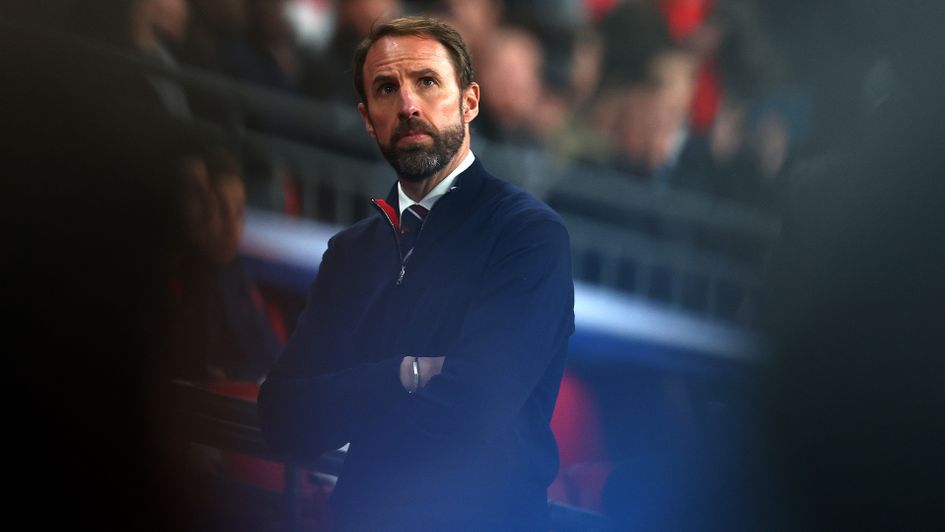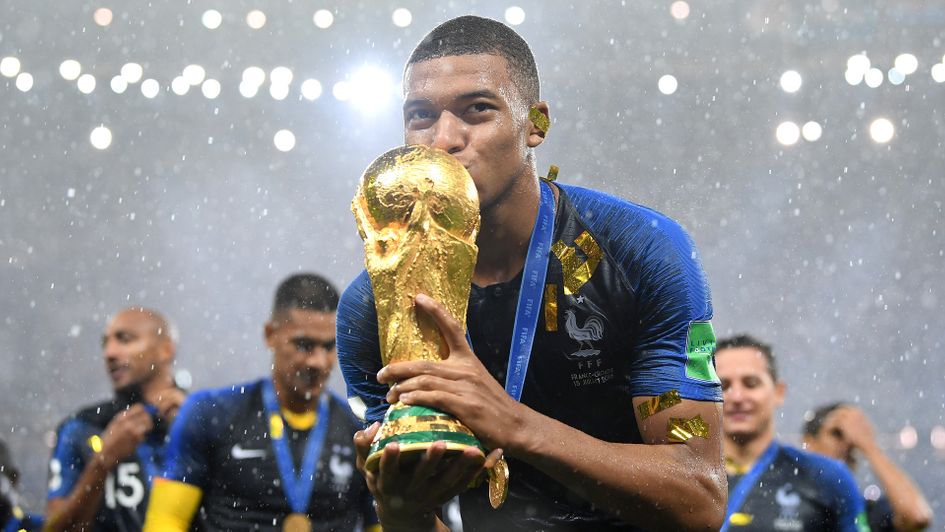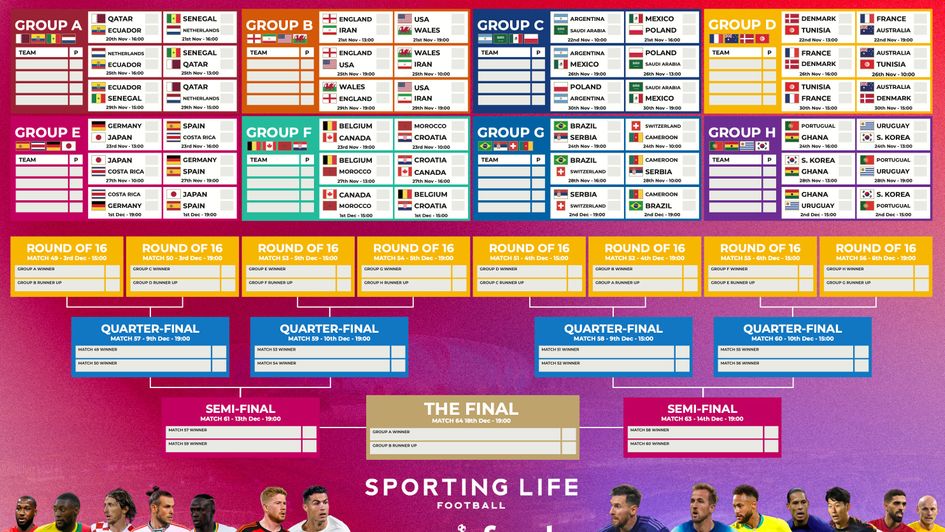We have all you need to know for Qatar 2022, including odds, fixtures, venues and TV information.
When and where is the World Cup being held?
The 2022 World Cup runs from November 20 to December 18 at eight different stadiums in the Gulf state of Qatar - the first time the tournament has been held both in the Middle East and in European winter.
The opening match will be staged at Al Bayt Stadium in Al Khor between Qatar and Ecuador on November 20, with the final taking place at Lusail Stadium in Lusail on December 18.
When are the World Cup matches and what are the kick-off times?
We have listed every fixture below, including the kick-off time and location.
What is the route to the final?
As the tournament progresses we will remove the location and kick-off details of matches that have taken place and fill int he scorelines to map out a route to the final.
Sunday November 20
Group A: Qatar 0-2 Ecuador
Monday November 21
Group B: England 6-2 Iran
Group A: Senegal 0-2 Netherlands
Group B: USA 1-1 Wales
Tuesday November 22
Group C: Argentina 1-2 Saudi Arabia
Group D: Denmark 0-0 Tunisia
Group C: Mexico 0-0 Poland
Group D: France 4-1 Australia
Wednesday November 23
Group F: Morocco 0-0 Croatia
Group E: Germany 1-2 Japan
Group E: Spain 7-0 Costa Rica
Group F: Belgium 1-0 Canada
Thursday November 24
Group G: Switzerland 1-0 Cameroon
Group H: Uruguay 0-0 South Korea
Group H: Portugal 3-2 Ghana
Group G: Brazil 2-0 Serbia
Friday November 25
Group B: Wales 0-2 Iran
Group A: Qatar 1-2 Senegal
Group A: Netherlands 1-1 Ecuador
Group B: England 0-0 USA
Saturday November 26
Group C: Tunisia 0-1 Australia
Group C: Poland 2-0 Saudi Arabia
Group D: France 2-1 Denmark
Group C: Argentina 2-0 Mexico
Sunday November 27
Group E: Japan 0-1 Costa Rica
Group F: Belgium 0-2 Morocco
Group F: Croatia 4-1 Canada
Group E: Spain 1-1 Germany
Monday November 28
Group G: Cameroon 3-3 Serbia
Group G: South Korea 2-3 Ghana
Group H: Brazil 1-0 Switzerland
Group H: Portugal 2-0 Uruguay
Tuesday November 29
Group A: Netherlands 1-2 Qatar
Group A: Ecuador 2-0 Senegal
Group B: Wales 0-3 England
Group B: Iran 0-1 USA
Wednesday November 30
Group D: Australia 1-0 Denmark
Group D: Tunisia 1-0 France
Group C: Poland 0-2 Argentina
Group C: Saudi Arabia 1-2 Mexico
Thursday December 1
Group F: Croatia 0-0 Belgium
Group F: Canada 1-2 Morocco
Group E: Costa Rica 2-4 Germany
Group E: Japan 2-1 Spain
Friday, December 2
Group G: South Korea 2-1 Portugal
Group G: Ghana 0-2 Uruguay
Group H: Serbia 2-3 Switzerland
Group H: Cameroon 1-0 Brazil
Round of 16
Saturday December 3
Netherlands 3-1 USA
Argentina 2-1 Australia
Sunday December 4
France 3-1 Poland
England 3-0 Senegal
Monday December 5
Japan 1-1 Croatia
Croatia win 3-1 on penalties
Brazil 4-1 South Korea
Tuesday December 6
Morocco 0-0 Spain
Morocco win 3-0 on penalties
Portugal 6-1 Switzerland
Quarter-finals
Friday December 9
Croatia 1-1 Brazil
Croatia win 4-2 on penalties
Netherlands 2-2 Argentina
Netherlands win 4-3 on penalties
Saturday December 10
Morocco 1-0 Portugal
England 1-2 France
Semi-finals
Tuesday December 13
Argentina 3-0 Croatia
Wednesday December 14
France 2-0 Morocco
Saturday December 17
Croatia 2-1 Morocco
Final
Sunday December 18
Argentina v France (Lusail Iconic Stadium, Lusail; kick-off 3pm)
How many teams take part and what is the format?
The format is the same as for World Cup 2018, with 32 teams divided into eight groups of four.
The top two teams in each group qualify for the round of 16, with four single-legged knockout rounds ultimately deciding the winner.
Which teams qualified for the World Cup and what are the groups?
All 32 spaces were filled following a lengthy qualifying campaign. Qatar qualified automatically as hosts for what is their first World Cup appearance.
Several high-ranking countries failed to make the cut, however, with Euro 2020 winners Italy not in attendance for the second World Cup running after losing to North Macedonia in the first stage of UEFA's play-offs. Chile and Colombia missed out from CONMEBOL.
Canada are competing for the first time since 1986, while Iran might be the most surprising qualifier from the AFC sector.
- Group A: Qatar, Ecuador, Senegal, Netherlands
- Group B: England, Iran, USA, Wales
- Group C: Argentina, Saudi Arabia, Mexico, Poland
- Group D: France, Australia, Denmark, Tunisia
- Group E: Spain, Costa Rica, Germany, Japan
- Group F: Belgium, Canada, Morocco, Croatia
- Group G: Brazil, Serbia, Switzerland, Cameroon
- Group H: Portugal, Ghana, Uruguay, South Korea
Who has won the World Cup previously?
Brazil have won the World Cup more than any other team, lifting the trophy on five separate occasions. They are also the only nation to have played in every edition of the tournament.
Germany and Italy (both four wins) are their nearest rivals in the charts, followed by a trio of two-time winners - Argentina, holders France and Uruguay, who won the inaugural World Cup in 1930.
England, who were famously crowned champions at Wembley in 1966, and Spain make up the list with one title each.
- 5 - Brazil (1958, 1962, 1970, 1994, 2002)
- 4 - Germany (1954, 1974, 1990, 2014) | Italy (1934, 1938, 1982, 2006)
- 2 - Argentina (1978, 1986) | France (1998, 2018) | Uruguay (1930, 1950)
- 1 - England (1966) | Spain (2010)
Who are the World Cup host cities and how big are the stadiums?
There are eight host stadiums across five cities in the tiny state of Qatar - for context, it is smaller in area than Yorkshire (11,437 to 11,897 km²).
The area of Qatar that is inhabited by its population of just 1.69 million is, however, far smaller, with much of the state vacant desert.
All of the stadiums are within a 35-mile radius of the capital Doha.
Lusail
Stadium: Lusail Iconic Stadium
Capacity: 80,000
Al Khor
Stadium: Al Bayt Stadium
Capacity: 60,000
Doha
Stadium: Stadium 974
Capacity: 40,000
Stadium: Al Thumama Stadium
Capacity: 40,000
Stadium: Education City Stadium
Capacity: 45,350
Al Rayyan
Stadium: Khalifa International Stadium
Capacity: 40,000
Stadium: Ahmad bin Ali Stadium
Capacity: 44,740
Al Wakrah
Stadium: Al Janoub Stadium
Capacity: 40,000
How can I watch the World Cup on TV?
TV coverage in the UK will be shared between the BBC and ITV.
It is believed the TV rights for the entire tournament netted FIFA a total of around $1.9bn.
Who are the favourites to win the World Cup Golden Boot?
Personal glory is the order of the day in the race for the World Cup Golden Boot, a prize that will be pursued by the world's very best this winter.
Tottenham Hotspur striker and England captain Harry Kane, who won the award in Russia in 2018, heads the market.
The 29-year-old has now scored 51 goals in 75 international appearances for the Three Lions, and has started the domestic season in good goalscoring form.

Kane will face stiff competition for the crown of top tournament scorer, though.
French duo Kylian Mbappe and Karim Benzema are prominent in the betting, with Portugal's Cristiano Ronaldo, the world’s leading goalscorer in international football history, splitting the pair.
In what is likely to be the 37-year-old's final chance at winning the World Cup or a Golden Boot, Ronaldo will certainly be looking to add to his 117-goal Portugal tally (191 caps).
The same could perhaps be said for Argentina legend Lionel Messi, who has been in scintillating form at club level and enters calculations for this award.

World Cup 2022 Golden Boot Award (odds via Sky Bet)
- Harry Kane - 7/1
- Kylian Mbappe - 8/1
- Cristiano Ronaldo - 12/1
- Karim Benzema - 14/1
- Lionel Messi - 14/1
- Romelu Lukaku - 16/1
- Neymar - 18/1
- Raheem Sterling - 20/1
- 25/1 bar
Who are the favourites to win the World Cup Golden Ball?
Introduced by FIFA in 1982, the Golden Ball award is presented to the best player at each World Cup.
A shortlist of the best players in the tournament is drawn up by the FIFA technical committee before a winner is voted for by media representatives.
As you would imagine, the contenders for the Golden Ball are very similar to the Golden Boot favourites.
There is precedent for a different name to be in the running, however. Luka Modrić won the award in 2018, a personal consolation after his Croatia side were beaten 4-2 by France in the final.
Mbappe was named young player of the tournament in Russia, and another strong run for France could see him step up to the top prize.
Who are the favourites to win the World Cup?
Brazil have consistently been the bookmakers' favourites to lift the trophy in Qatar.
Despite losing the Copa America final to rivals Argentina last year, the five-time world champions enter the tournament with an excellent chance.

Holders France have been slotted in as second favourites with most bookies, seeking to become the third country in World Cup history to retain the crown.
Will England win the World Cup?
A string of uninspiring performances has seen England pushed out recently, but they remain one of the likelier contenders according to the odds.
While they showed signs of life by fighting back from 2-0 down to ultimately draw 3-3 against Germany in their final game before the World Cup, Gareth Southgate's men are now on the worst run of any England men's team since 1993, without a win in six matches.

Before Luke Shaw reduced the deficit in that Nations League fixture at Wembley they hadn't scored from open play for a staggering 565 minutes.
What cannot be ignored, however, is the simple fact that England reached the semi-finals in Russia in 2018 and the final of Euro 2020.
World Cup 2022 winner (odds via Sky Bet)
- Brazil - 9/2
- France - 5/1
- England - 13/2
- Argentina - 7/1
- Spain - 8/1
- Germany - 9/1
- Netherlands - 12/1
- Belgium - 14/1
- Portugal - 14/1
- 28/1 bar
Odds correct before the tournament
World Cup: More from Sporting Life
- World Cup 2022: Sporting Life Hub
- World Cup 2022: Tips, best bets & analysis
- World Cup 2022: All you need to know
- World Cup 2022: Fixtures, results & live scores
- Free downloadable World Cup wallchart
- Free downloadable World Cup sweepstake kit
- Follow Sporting Life Football on Facebook
- Download our free iOS and Android app












